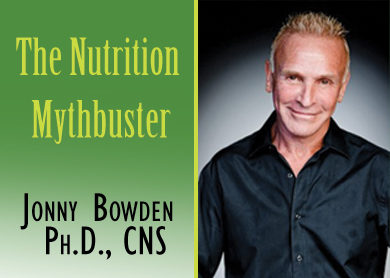What can you do to protect your heart?
Having written a book that essentially questions the entire cholesterol establishment and the notion that saturated fat and cholesterol cause heart disease (The Great Cholesterol Myth by Bowden and Sinatra), I’m frequently asked the following question:
If saturated fat and cholesterol aren’t the problem, what is? And, more importantly, what can I do to protect my heart?
Glad you asked.
I’ve put together my nine tips for protecting your heart and living happily to a seriously ripe old age.
- Reduce sugar and processed carbs. Sugar is a way bigger contributor to heart disease than fat ever was. Plus, it contributes to inflammation which is part of just about every degenerative disease on the planet.
- Stop worrying about fat, including saturated fat. Two major meta-analyses in the last few years have established that saturated fat does not cause heart disease, and isn’t even related to it. However, the combination of sugar and fat is a particularly bad one.
- Do an oil change! Reduce your intake of vegetable oils and increase your intake of omega-3s, especially fish oil. The balance between omega-6 (vegetable oil) and omega-3 (fish oil) is one of the most important metrics for human health, and the ideal ratio of these two types of fat in the diet is 1:1. Research shows we consume over than 16 times more (pro-inflammatory) omega-6s than (anti-inflammatory) omega-3s.
- Learn some techniques for managing stress. Stress contributes to every disease known to man (including heart disease) and is a tremendous risk factor for cardiovascular disease.
- Get some sun and spend some time outdoors. Most people are too low in vitamin D and could use more reasonable sun. And research shows that being around greenery improves health in a number of measurable ways.
- Eat an anti-inflammatory diet. Cholesterol doesn’t cause heart disease, but inflammation sure does promote it. Foods rich in anti-inflammatories include virtually all vegetables, low-sugar fruits like apples and berries, avocados, nuts—all the usual suspects. And new research shows that citrus Bergamot—available now as a supplement by Reserveage—is a powerful balancing agent for the critical Triglyceride: HDL radio.
- Supplement wisely. My top recommendations include fish oil, magnesium, vitamin D, CoQ-10, resveratrol (trans-resveratrol), curcumin, probiotics, and for those with existing heart issues, D-ribose and L-carnitine. Reserveage makes an all-trans-resveratrol product that I take every day, as well as an exciting new product from the citrus bergamot plant called Bergamot Cholesterol Support which lowers triglycerides and blood sugar and boosts HDL cholesterol.
- Do some kind of exercise every day. For basic heart health and protection, it's hard to beat a daily walk.
- Cultivate nourishing relationships. And I’m not just talking about Facebook friends. Friendships, connections and social usefulness have enormously beneficial effects on both the heart and on health in general.
Will doing all these things eliminate all risk? Of course not. But neither will wearing a seat belt and driving sober. Doing those things won’t positively guarantee that some nutbag texting teen won’t jump the divider and kill you.
These actions will improve your health and cut your risk.
And really, that’s all we can ask of them! WF
 Jonny Bowden, “the Nutrition Myth Buster”™ is a board-certified nutritionist and the best-selling author of The Great Cholesterol Myth and 13 other books. Visit him at www.jonnybowden.com.
Jonny Bowden, “the Nutrition Myth Buster”™ is a board-certified nutritionist and the best-selling author of The Great Cholesterol Myth and 13 other books. Visit him at www.jonnybowden.com.
NOTE: The statements presented in this column should not be considered medical advice or a way to diagnose or treat any disease or illness. Dietary supplements do not treat, cure or prevent any disease. Always seek the advice of a medical professional before altering your daily dietary regimen. The opinions presented here are those of the writer. WholeFoods Magazine does not endorse any specific company, brand or product.
Posted on WholeFoods Magazine Online, Jan. 28, 2015










